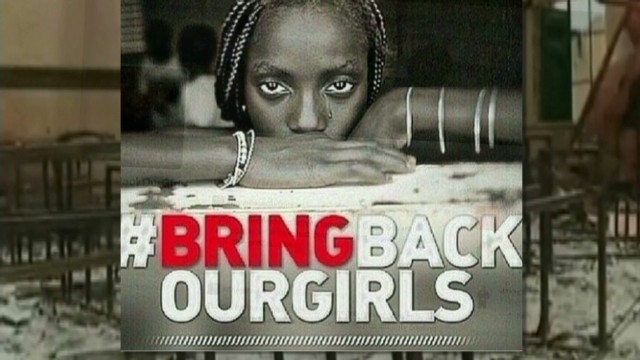 The Nigerian Islamist militant
group Boko Haram has been in the news consistently over the past week with
their abduction of over 200 schoolgirls.
Students in the eastern town of Chibok, the girls were kidnapped in
accordance with Boko Haram’s violent stance against Western education. Many of the girls are Christian (though
several are Muslim); Boko Haram had threatened to kidnap Christian women in
retaliation for the arrest of members' wives by Nigerian government forces.
The Nigerian Islamist militant
group Boko Haram has been in the news consistently over the past week with
their abduction of over 200 schoolgirls.
Students in the eastern town of Chibok, the girls were kidnapped in
accordance with Boko Haram’s violent stance against Western education. Many of the girls are Christian (though
several are Muslim); Boko Haram had threatened to kidnap Christian women in
retaliation for the arrest of members' wives by Nigerian government forces. 
Over 50 of the girls have managed to escape, but hundreds more are in need of rescue.
The Nigerian government has been slow to react with this huge latest offense from Boko Haram due to weak infrastructure and lack of trust between Abjua and local leaders. Abuja fears the stunt is a political trap, and in any case lack the security forces and equipment necessary to pursue the group and rescue the girls.
Providing foreign assistance to Nigeria has been tricky in the past due to strong national pride and sense of sovereignty. It has also rejected the idea of establishing Africom in Abuja, preferring to fund its own security infrastructure including an as of yet unsuccessful drone program. Just this past week, the World Economic Forum was held in Abuja, and with increased international attention, Nigeria seems to have relented somewhat on this issue.
 However,
defeating Boko Haram will not come from external powers. Many people in
Nigeria’s north feel marginalized in Nigerian society and excluded from wealth
and opportunity. Congress for Progressive Change Secretary
Bubu Galadima spoke with BBC News: “If people feel they are being denied
anything or an injustice is being meted out to them then there is a likelihood
that they will take the law into their own hands and help themselves."
Perhaps the best way to approach the problem is not with tanks, guns or drones... but to build societal
infrastructure from the bottom up. The Nigerian government could start to
provide better opportunities for the youth of Northern Nigeria… including
education. This could stop the cycle for the future. But for now,
#bringbackourgirls.
However,
defeating Boko Haram will not come from external powers. Many people in
Nigeria’s north feel marginalized in Nigerian society and excluded from wealth
and opportunity. Congress for Progressive Change Secretary
Bubu Galadima spoke with BBC News: “If people feel they are being denied
anything or an injustice is being meted out to them then there is a likelihood
that they will take the law into their own hands and help themselves."
Perhaps the best way to approach the problem is not with tanks, guns or drones... but to build societal
infrastructure from the bottom up. The Nigerian government could start to
provide better opportunities for the youth of Northern Nigeria… including
education. This could stop the cycle for the future. But for now,
#bringbackourgirls. 



No comments:
Post a Comment